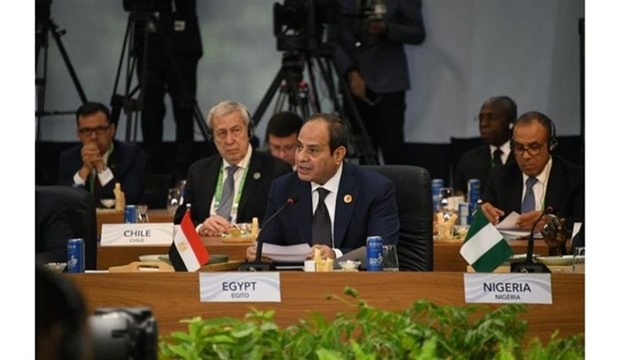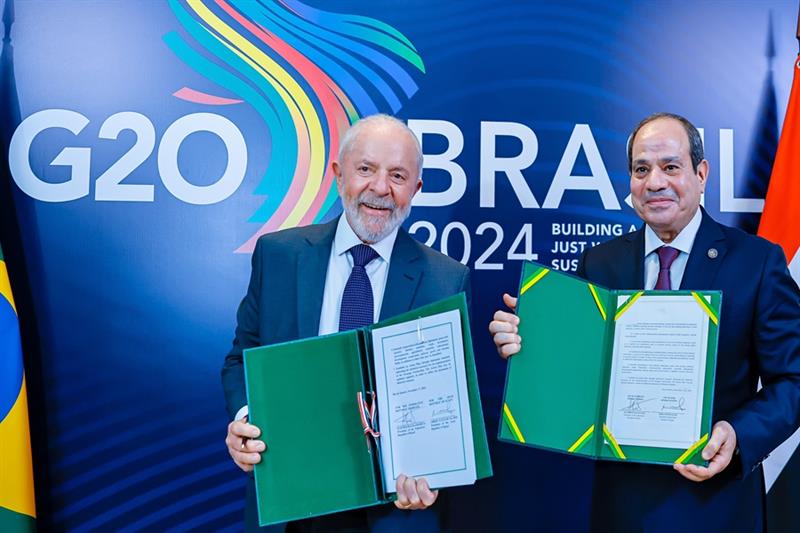The G20 Summit in Rio de Janeiro witnessed a pivotal moment in international relations. Egyptian President Abdel Fattah El-Sisi and Brazilian President Luiz Inácio Lula da Silva fortified their nations’ ties to a strategic partnership.
This collaboration signifies not only a step forward for Egypt and Brazil but also a milestone in addressing global challenges through joint efforts.
Strengthening Bilateral Relations


During their meeting, President El-Sisi expressed his gratitude for Brazil’s acknowledgment of Egypt’s pivotal role in the Middle East and Africa.
He commended Brazil’s exceptional organization of the summit and its commitment to tackling global inequities through initiatives like the Global Alliance to Combat Hunger and Poverty.
President Lula, in turn, praised Egypt’s active participation in G20 activities, underscoring El-Sisi’s personal dedication to championing the priorities of developing nations.
This mutual respect culminated in the signing of a joint statement that formalized their nations’ strategic partnership aimed at bolstering economic cooperation in trade, investment, and development.
Egypt’s Presence on the Global Stage


This marks Egypt’s fourth participation in a G20 Summit, following previous engagements in China (2016), Japan (2019), and India (2023). Egypt’s consistent presence reflects its growing international influence and its commitment to advocating for global equity.
At the summit, El-Sisi emphasized the urgency of achieving Sustainable Development Goals (SDGs), especially amid rising global instability and post-pandemic poverty rates.
According to the World Bank, poverty has surged globally since 2020, and partnerships like the one between Egypt and Brazil are essential in addressing these crises.
Economic Collaboration and Future Prospects


The strategic alliance between Egypt and Brazil has implications that extend beyond the bilateral sphere. A potential future summit on renewable energy, leveraging Egypt’s geographical advantage and Brazil’s advancements in biofuels, was reportedly discussed.
This collaboration could position both nations as leaders in sustainable energy solutions, further contributing to global efforts to combat climate change.
Trade and investment ties between Egypt and G20 nations also highlight Egypt’s expanding economic role. According to the Central Agency for Public Mobilization and Statistics (CAPMAS):
• Egypt’s trade with G20 countries reached $61 billion in the first nine months of 2024, up from $55.6 billion in the same period in 2023.
• Key exports included fuels, fruits, garments, and fertilizers, while imports were dominated by machinery, fuels, and grains.
Brazil emerged as one of Egypt’s major suppliers, with imports totaling $2.9 billion, further solidifying their economic interdependence.
The partnership between Egypt and Brazil holds the potential to influence the regional and global economic landscape. By addressing mutual challenges, such as hunger, poverty, and sustainable energy, this alliance sets an example for other developing nations.
Moreover, Egypt’s strategic role in the Middle East and Africa, combined with Brazil’s leadership in Latin America, underscores the potential for cross-continental collaboration in solving global issues.
We Also Said: Don’t Miss It…MENA Startup Funding Drops 52% in October 2024: Key Trends and Insights



